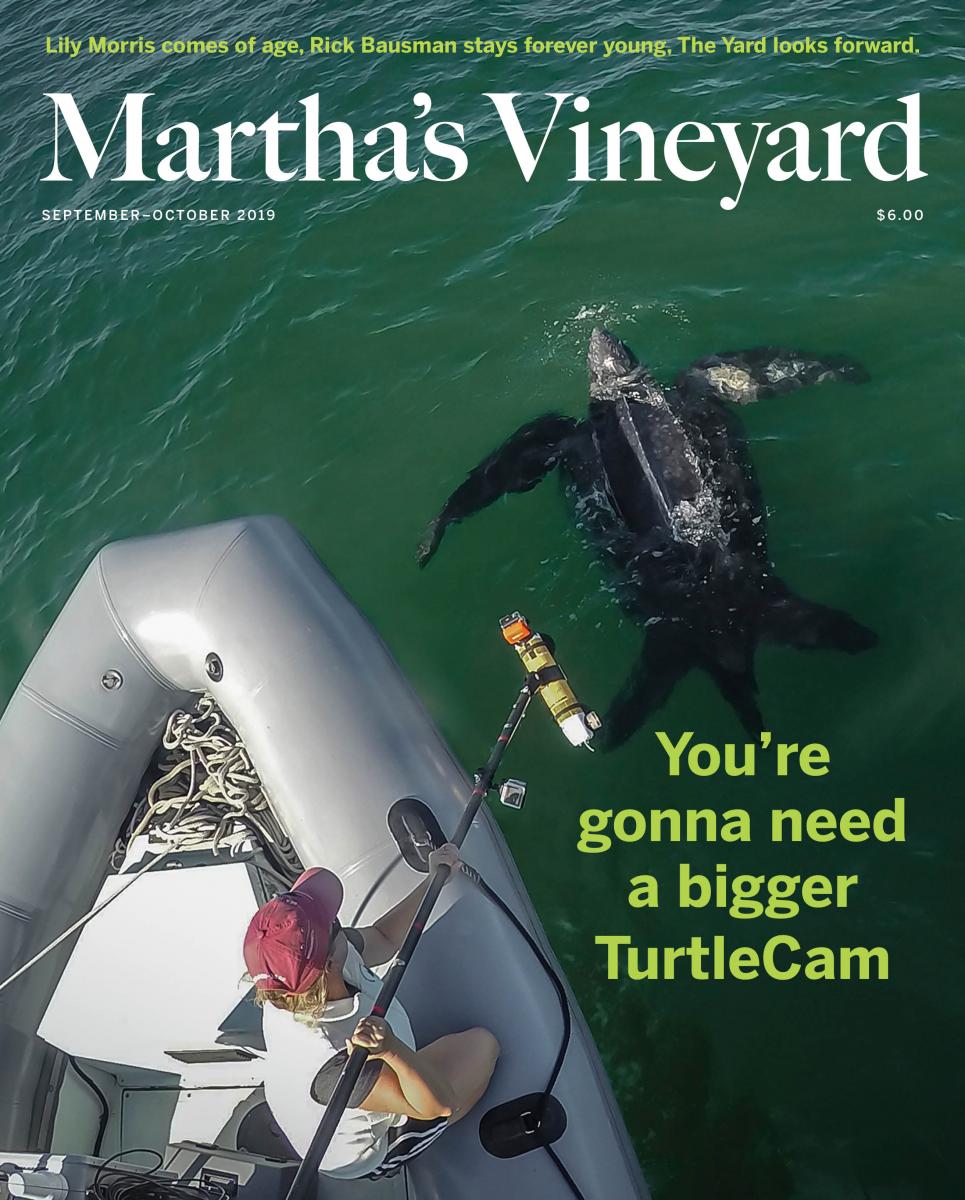Ahh Martha’s Vineyard, where enduring values endure: small country roads lined with stone walls, the simple joy of time spent with family and friends, the siren call of “not in my backyard.” 
You may have read how the Island’s coastline is under assault from the rapid rise in sea level due to global climate change. And how the acidification of the ocean caused by the same carbon emissions driving climate change could devastate the shellfish industry. How warming waters may be changing the migration patterns of striped bass, lobsters, right whales, and other species. How Atlantic hurricanes are poised to become both more frequent and powerful. In other words, you, like I, may have read enough to conclude that with the Vineyard facing the front lines of climate change, we ought to be out front as well on efforts to slow or mitigate those effects.
Or not. Recently the Edgartown Conservation Commission denied a permit to lay the cables needed to bring electricity to the mainland from Vineyard Wind’s proposed offshore wind farm. After hearing concerns from commercial fishing interests, the commission – made up of unelected volunteers with varying backgrounds, such as real estate law, residential construction, and golf club management – came to a conclusion opposite that of the half-dozen other regulatory bodies that had already approved the project. The project suffered a bigger setback a few weeks later when the fossil fuel–friendly Trump Administration announced it was delaying indefinitely the publication of a required Environmental Impact Statement for the wind farm.
“Our cod stocks are finally coming back,” said one fisherman at the Edgartown commission’s hearing on the issue, “and all of a sudden you guys want to sit there on a boat and pile-drive the crap out of the ocean floor for God knows how long.”
Commercial fishing is time-honored work done by individuals with a personal love of the sea and a sincere stake in the health of the fish that live in it. As an industry, however, it doesn’t have a lot of environmental credibility. What cod stocks are “finally coming back” from, after all, is relentless overfishing: far from an oceanic Eden, the seafloor has been scraped by trawlers for generations. The list of officially overfished species in the region also includes mackerel, bigeye tuna, yellowtail flounder, and striped bass.
As Rip Cunningham reported in this magazine’s Winter–Spring 2018–2019 issue on the underwater impact of wind farms, scientific studies suggest the effect on fish of pile driving will be temporary. Also, there are no known negative effects of the electricity transmission cables that already cross Vineyard Sound. Experience in Rhode Island and the Gulf of Mexico suggests the long-term effect of towers on fish stocks is likely to be a net gain due to the creation of restricted areas and additional benthic structure. But the fishermen are not wrong: there will always be questions.
“What you don’t know, you don’t know,” said one of the commissioners explaining his vote to deny the permit.
There’s only one problem with his rationale. It’s what we do know: the hour is late; it’s getting hot in here.




